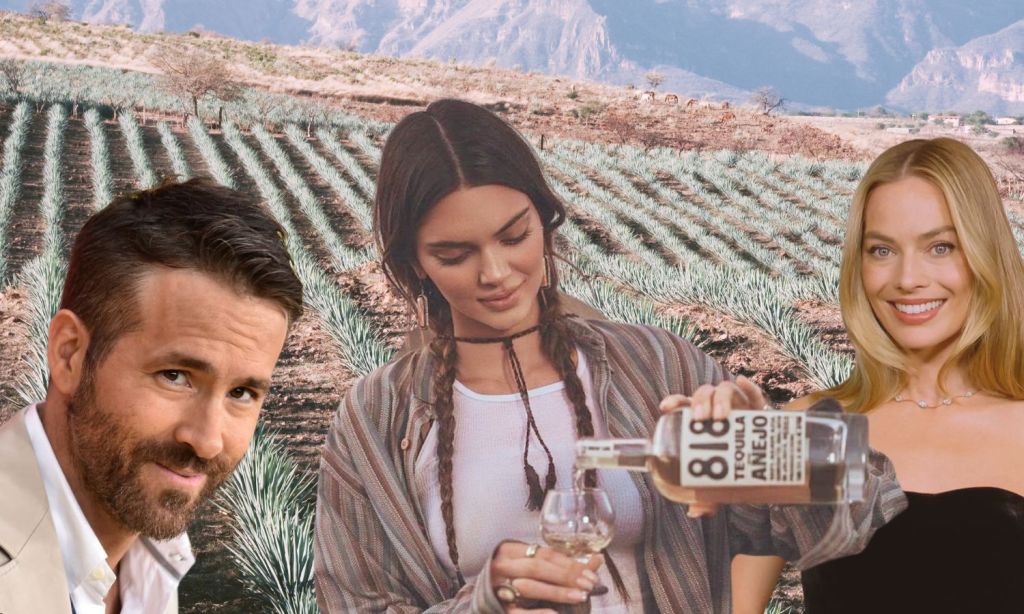In 2013, George Clooney, along with Rande Gerber, and Mike Meldman released the first celebrity-owned alcohol brand, Casamigos Tequila. Four years later, they sold it for just shy of a billion dollars. Not bad for four years of work, right?
Since then, celebrities, be they basketball stars, actors, musicians, models, or anyone with immense influence, have released their own spirits or wine. In a whirlwind few years, our liquor shelves were (and still are) stacked with Hollywood booze. They have become the toast of the town, from Kendall Jenner’s tequila to Ryan Reynolds’ gin, creating a buzz that leaves us wondering: Why are we reaching for spirits stamped with a star’s seal of approval over those crafted by local, family-owned gems?
To decipher the allure, we need to uncork the concept of trust — a crucial element in our libation decision-making process, says Gerry Cyron, executive head brand thinker at Thinkerbell. “There are three pillars of trust,” he says.
There’s the slow burn of built trust, where a business establishes credibility over time. Then there’s borrowed trust, where celebs step into the scene, turning an alcohol brand into an instant household name. But as Cyron notes, it’s not always a golden ticket to success, recalling the less-than-stellar performances of Mariah Carey’s Angel Champagne or Trump’s Vodka. “A name alone is not a recipe for success,” he says.
So, why do we gravitate towards the glitz and glam of Hollywood on our liquor shelves? Could it be that purchasing these brands somehow links us to the stars or allows us to bask in their glamorous lifestyle? The answer, it seems, is as varied as the celebrity landscape itself.
Cyron taps into the psychology behind our choices, suggesting that it’s not a one-size-fits-all phenomenon. Perhaps we’re drawn to celebrity-owned brands because of the perceived expertise and credibility these stars bring to the table — “think Air Jordans of the liquor world.”
The concept of social proof also makes an entrance, where our inherently social nature leads us to seek guidance and validation from those we admire. The Kardashian Kollection or Posh Spice’s denim label may not just be fashion choices — they could be manifestations of our desire to emulate success.

The term “celebrity worship” was first coined by researchers Lynn E. McCutcheon and John Maltby in 2003. “The vast reaching, immediacy and intimacy of social media has been playing a big part in this,” says Cyron, “but celebrity worship had a place BZ (Before Zuckerberg),” he notes. Just Google Beatlemania and you will see a similar devotion, hysteria, and fanaticism. Fast forward to Lady Gaga’s Little Monsters, Beyonce’s BeyHive, Harry Styles, or Taylor Swift fans — it’s the same thing.
“We often feel an emotional connection to our favourite celebrities or even fictitious roles they play. We identify with them because they are either aspirational (who we want to be) or relatable (how we see ourselves or parts of ourselves),” says Cyron. A decade ago, a Rolex worn by Roger Moore, aka James Bond, in Live or Let Die sold for almost $400k. There clearly was a bit of a wanna-be-spy who successfully attracted the opposite sex in the buyer’s self-belief.
But let’s not forget the marketing game at play. Celebrity ambassadors have been a marketing staple for decades, and as Cyron notes, celebrity-owned alcohol brands are simply the latest iteration of this strategy. The twist? These celebs are not just faces — they’re entrepreneurs with real skin in the game. Magic has ownership stakes in three Los Angeles-based sports teams, Starbucks, Burger King, 24 Hour Fitness, and the life insurance company EquiTrust, and he uses his influence and media profile to grow these businesses (hard).
When it comes to believing in celebrity-owned brands, credibility and expertise matter, he suggests, but it’s the personal attributes that often tip the scales. For instance, Aviation Gin may not be deemed “better” in a traditional sense, but the charm of Ryan Reynolds and his relatable persona might just make it more appealing.
While our love for celebrities and their ventures is undeniable, Cyron warns of potential negative impacts on mental health. The constant exposure to seemingly perfect lives can take a toll, particularly on the younger generation.
In this heady mix of admiration and potential pitfalls, the celebrity-owned alcohol brand trend continues to swirl, leaving us with a lingering question: Is it worth the sip?
Related: Has Fusion Culture Come For Our Wine?
Related: Rising Temperatures Uncork New Challenges and Opportunities For Australia’s Wine Industry
Read more stories from The Latch and subscribe to our email newsletter.







